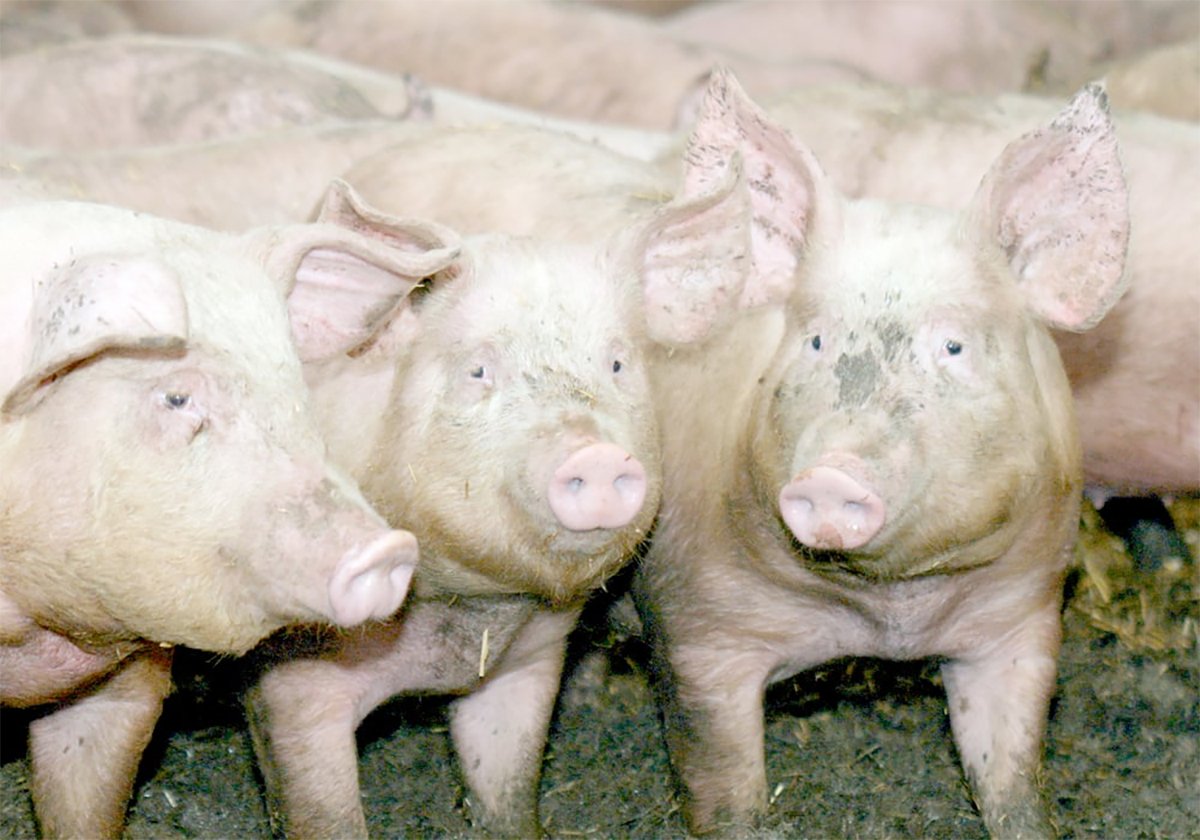BLACKIE, Alta. – When it comes to farm diversification, Grant and Sharon Cooke figure it’s best to stay with what they know.
When farm commodity prices were in the basement, and after 10 years of drought, this couple looked for something that could save the farm but be pleasant to work with.
The experienced Arabian horse breeders and cattle producers chose miniature donkeys in 1988. The Cookes now have a herd of about 115 jacks, jennets, foals and geldings.
“If the family farm was going to continue, we couldn’t see much future in straight grain farming,” said Grant. They grow 3,500 acres of crops each year.
Read Also

The Western Producer Livestock Report – October 2, 2025
Western Producer Livestock Report for October 2, 2025. See U.S. & Canadian hog prices, Canadian bison & lamb market data and sale insight.
Their donkeys have paid off and have dispelled the worry about fluctuating grain and cattle prices. During their first sale, the Cookes were apprehensive because no one knew how much these animals were worth, or if anybody would buy one. That sale averaged $3,400 on 26 lots with buyers from all over North America.
At their fourth production sale held on the farm this summer, the average female sold for $6,350. The top-selling animal was a jennet which went for $12,100 to a local rancher.
“She was the best we ever raised,” said Grant.
Miniature donkeys descend from a group of 30 imported from Sicily to the United States. There are no miniature donkeys left in Italy, said Sharon, who is president of the Canadian Donkey and Mule Association.
The animals are 36 inches (91 centimetres) or less at the withers and have one less vertebrae in their spine compared to other equines. The body is in proportion and they come in various colors although the Cookes strive for red donkeys.
They are among a handful of Canadian donkey breeders. To establish a market they started a production sale to sell their and their clients’ extra animals.
Attracts American buyers
A new sale barn was built this year and a show ring has been set up beside a barley field. With visitors coming from as far away as Connecticut to buy donkeys, keeping the sale on the farm adds ambience and shows guests a typical mixed prairie farm.
The Cookes also offer seminars prior to sale time to teach people how to bid at an auction as well as how to provide proper animal care. People new to livestock auctions are sometimes intimidated by the atmosphere and auctioneer’s chatter.
Besides their sale, the couple and their daughters, Sandra and Krysta, get involved in the donkey business and travel the North American show circuit to meet other breeders and see which direction the industry is going.
They believe for any livestock industry to survive, there must be support among breeders, follow up on sale animals and a sense of leadership within a breed. They are striving to be among the leaders.
“Every industry has to have leaders to get started,” said Sharon.
Highly social, miniature donkeys make ideal pets and they are popular on acreages. They’re proven guard animals for predator control in sheep flocks. They don’t like dogs or coyotes and will attack them if necessary. They can also learn to help herd sheep, she said.
Small but strong
Mature donkeys are stronger for their weight than a horse and a jack (male) can pull two people in a small cart.
Sharon attributes success with miniature donkeys to their management program. The Cookes sort and cull the donkeys in the same strict manner as they manage their Arabians and cattle.
Most of the males are gelded to retain only the best jacks to continue improving bloodlines.
Along with good body conformation and proper size, presence and attitude must be seen in a potential herd sire. The teeth must also line up properly otherwise the animal can’t graze properly and shouldn’t be sold as breeding stock.
Gestation takes a year. Foals are about 15 to 20 pounds (around eight kilograms) at birth and 18 to 24 inches (46-61 cm) tall.
“They’re all legs and ears when they’re born,” said Sharon.

















